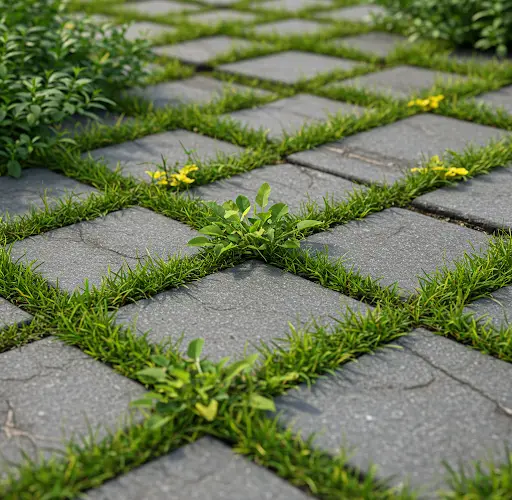Turn Weeds Into Natural Fertilizer: How Unwanted Plants Can Enrich Your Garden
In the world of gardening, weeds are typically seen as a nuisance—unwanted plants that compete with crops for water, light, and nutrients. But what if those same weeds could actually become your allies in the garden? Surprisingly, many of the plants we commonly refer to as “weeds” can serve a valuable purpose when used correctly. They can be transformed into natural fertilizers that nourish your soil and boost the health of your vegetables, fruits, and flowers.
Here’s how to put those pesky plants to good use and turn them into a sustainable, nutrient-rich resource for your garden.
Why Use Weeds as Fertilizer?
Weeds grow quickly and abundantly, often in the same soil that supports your crops. This means they’ve already adapted to the local environment and absorbed valuable nutrients from the earth. When reused properly, weeds can return these nutrients back to the soil, enriching it in a completely natural and chemical-free way.
Many common weeds—like nettle, dandelion, chickweed, or comfrey—are particularly rich in nitrogen, potassium, and trace minerals. These nutrients are essential for healthy plant growth, and when extracted into a fertilizer, they can become a powerful organic tonic for your garden.
1. Weed Tea: Liquid Fertilizer from Your Garden
One of the simplest and most effective ways to turn weeds into fertilizer is by making a liquid extract—often called “weed tea.”
You’ll need:
-
A bucket or barrel
-
Freshly pulled weeds (such as nettle, dandelion, chickweed, comfrey)
-
Water
How to make it:
-
Fill the bucket about halfway with weeds. Chop or tear the plants to speed up decomposition.
-
Cover the weeds with water, filling the rest of the container.
-
Let the mixture ferment for about 2–3 weeks. Stir the contents every few days to help the process along.
-
You’ll know the fertilizer is ready when the liquid turns dark and gives off a strong, earthy odor.
Before applying the liquid to your garden, dilute it with water in a 1:10 ratio (one part fertilizer to ten parts water). This reduces the risk of over-fertilizing and allows your plants to absorb the nutrients more effectively. Use it to water the soil around your vegetables, flowers, or fruit trees to promote strong growth and vibrant foliage.
2. Add Weeds to Your Compost Pile
Another excellent way to recycle weeds is to mix them into your compost. When layered properly with other materials like kitchen scraps, dried leaves, and grass clippings, weeds break down quickly and contribute a rich mix of minerals and organic matter to your compost pile.
Important tip: Be sure not to compost weeds that have gone to seed. Seeds may survive the composting process and could spread unwanted plants throughout your garden later. Stick to young, seedless weeds or remove seed heads before composting.
Including weeds in your compost helps speed up decomposition and increases the overall nutrient content of the final compost. Once fully broken down, this mixture becomes a potent soil amendment that improves texture, fertility, and microbial life in your garden beds.
3. Use Weeds as Green Mulch
If you’re looking for an easy and immediate way to make use of weeds, consider turning them into green mulch. Instead of discarding pulled weeds, chop them up and spread them around the base of your plants. This simple practice helps in several ways:
-
Moisture retention: A layer of green mulch reduces evaporation from the soil, keeping roots cooler and better hydrated.
-
Soil protection: Mulch prevents erosion from wind and rain, keeping the soil structure intact.
-
Nutrient cycling: As the weeds decompose, they release nutrients back into the soil, creating a slow-release fertilizer effect.
Again, avoid using any plants that have gone to seed, and do not mulch with invasive species unless you are sure they won’t resprout.
Weeds: From Problem to Powerhouse
Weeds don’t have to be the enemy in your garden. With the right approach, they can be transformed into one of your most effective gardening tools. Whether you turn them into liquid fertilizer, compost them, or use them as mulch, weeds are a free, sustainable, and nutrient-dense resource.
By making the most of what nature already provides, you not only reduce waste but also create a more balanced and self-sustaining garden ecosystem. Try these methods in your own garden and experience the benefits firsthand—your plants will thank you.



